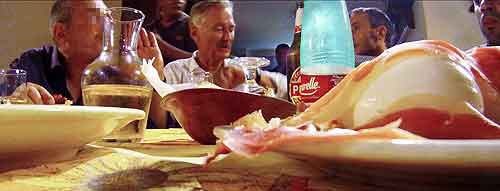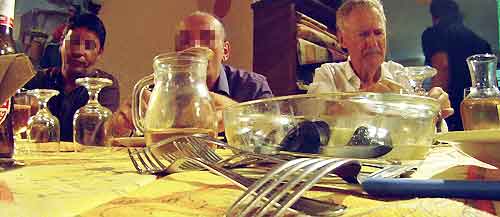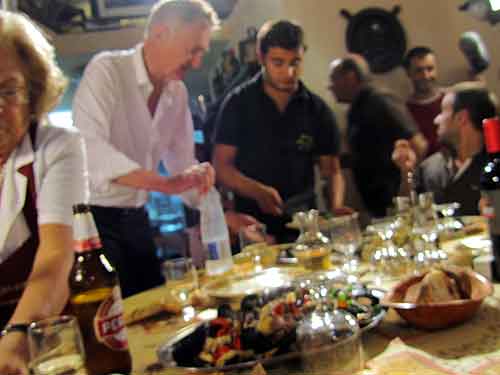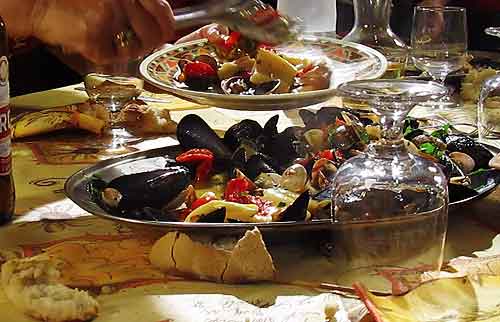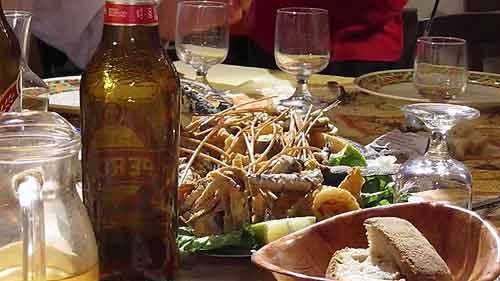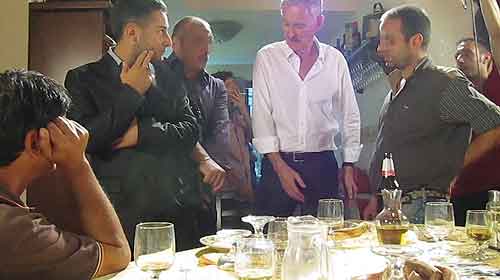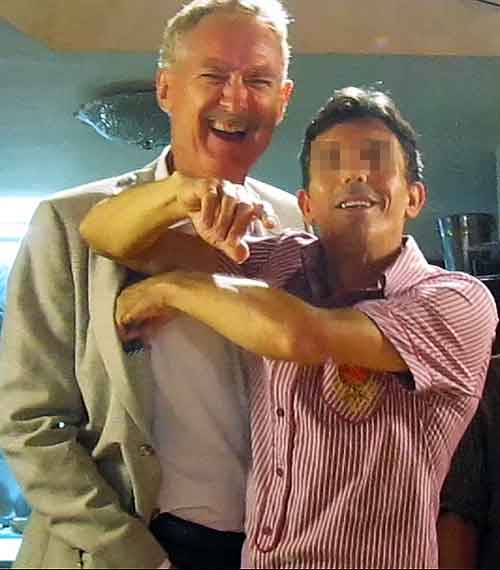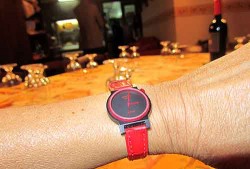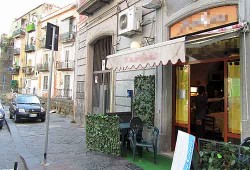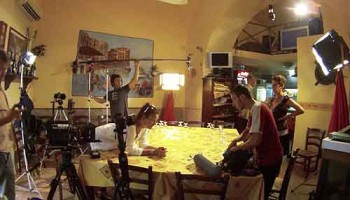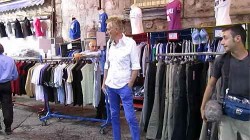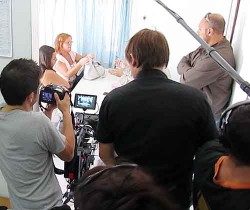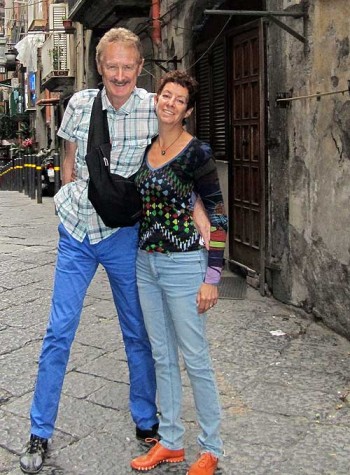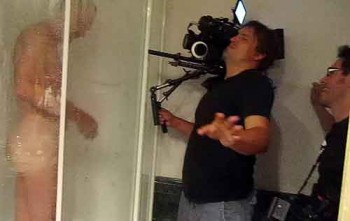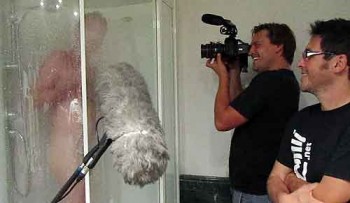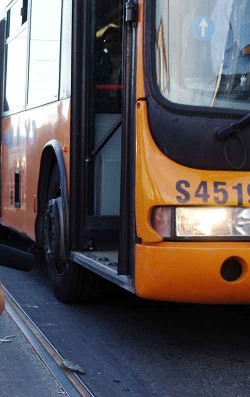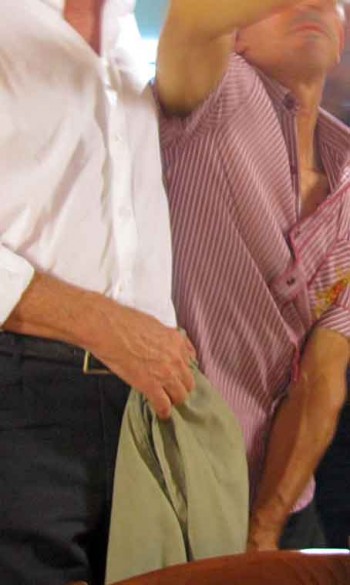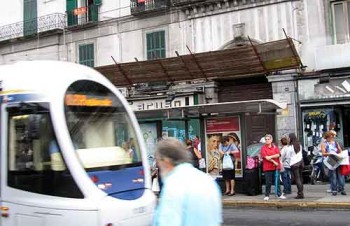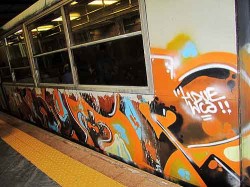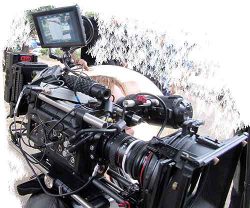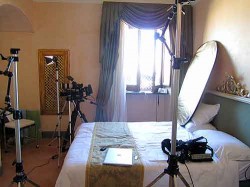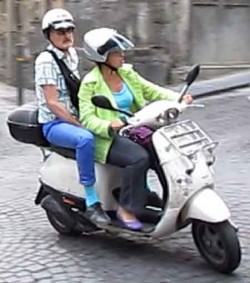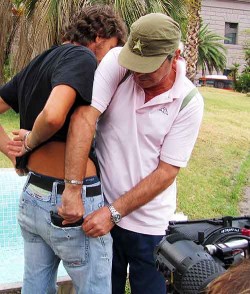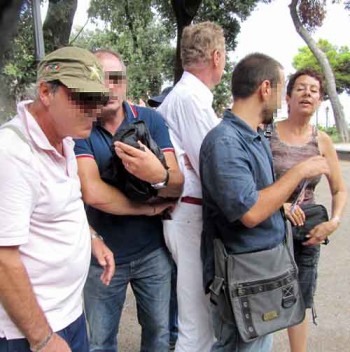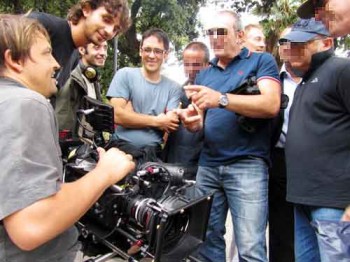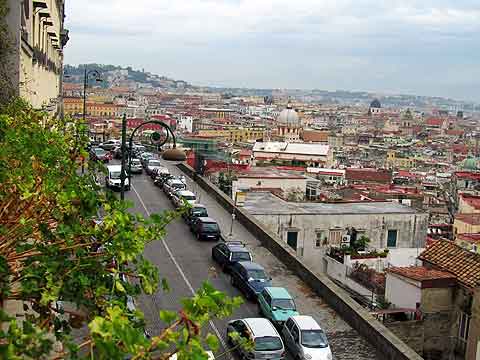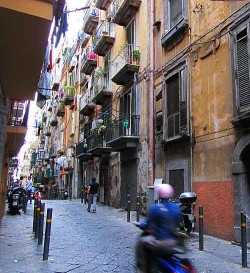Dinner with thieves, continued. Carafes of white wine land on the table. I join Andy and Lou and have beer. Among much laughter, the feast begins, family style. Plates of bruschetta arrive, and large rounds of mozzarella draped in prosciutto. Andy stands, carves the cheese, and serves everyone. Before he finishes, platters of fried items are placed on the table. Fried cheese, fried mashed potatoes, fried fishballs on sticks, fried squid, fried octopus. Before anyone begins, all glasses must clink all other glasses. Then men stretch across the table, serving themselves and each other with their hands. Ed puts handfuls of crisp-fried squid on my plate, and squeezes a lemon over it all.
Bob and several of the pickpockets are standing again, clowning around and swiping stuff. Watch me! No, wait—try it this way! Our plates are cleared and fresh ones laid down. The room is thick with smoke and loud with laughter. Ed is taking pictures with his mobile phone, or maybe he’s taking video. Bowls of stewed octopus come, and others heaped with steamed mussels. Bob borrows someone’s lit cigarette and pushes it though a handkerchief—no hole!—no burn! The men love it. More beer, more wine, more bread… Bob calls for dessert—maybe some fruit. The thieves laugh. Not yet! We have more courses coming!
Michele is translating for six pickpockets and Bob, as fast as he can. In such demand, he sometimes forgets he’s also sound recordist for a big-time film and someone has to remind him: “Michele, the boom!” I make a little conversation with Ed, on my left, but since I don’t have a translator, I mostly just observe.
A huge platter of pasta comes, covered with buttery mussels and a variety of clams. Its fragrant steam masks the cigarette smoke for a few minutes. It’s a work of art. The pasta is thick and chewy, the clams sweet, garlicky, divine. This dish, served in the den of thieves, is my favorite of all the spectacular meals enjoyed in our host city. It pains me to withhold credit where credit is due. I want to shout the name of the restaurant, and the city we’re in. I will… later.
There’s serious eating for a while. This is food to pay attention to, and these men are no strangers to fine cuisine. Another platter is added to the table, this one heaped with shell fish, crustaceans, and fish. Really, it is too much. Yet Ed is popping baby squids into my mouth with his fingers, and I’m enjoying them. There is some metaphor here—something about the fingers of a thief being exempt from all rules.
The men rise for more demonstrations. Bob swipes the restaurant owner’s wallet, then Andy shows how he can take cash without removing the wallet. Finally, they get to that special front pocket technique, unique to this city. Andy crushes against Bob, as if on a lurching bus. Frank holds Bob in place from the other side. Andy removes bill after bill from Bob’s front pocket, handing them off to Marc. Then Andy turns and skulks away. Playing along, Bob shouts “who took my money!” Marc passes the cash back to Andy, who presents it to Bob with a half bow and hand up in apology. Bob accepts the cash and Andy departs.
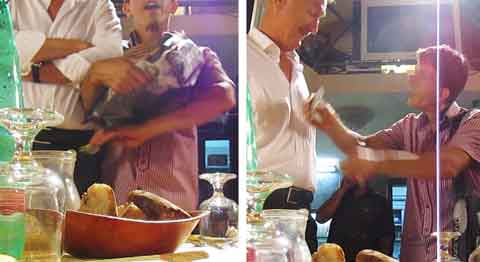
“We return the money when we have to,” he explains, “but it’s never the same amount.” Exactly like a magician, he has palmed half the cash before returning it. The victim never counts it on the spot. Andy grins hugely, full of pride.
Lou, now retired, sits out most of the demonstrations, but can’t help getting into the action to show his own wallet extractions. He rocks the wallet—zig-zags it out. The demonstrations and raucous laughter extend through dessert and beyond; through coffee, through liqueur. Then it’s time for picture-taking. All the thieves want to get between Bob and me for a photo.
There’s a surprise: everyone signs full releases agreeing to be in our film, faces shown. We are ecstatic. The thought of blurring these expressive, lively faces was distressing. Now these men, the true stars of our pickpocket documentary, will be laid bare; not only their identities, but their emotions, their humanity.
And there’s a challenge. The pickpockets have admired Bob’s steals, but insist their work is different. Can he perform in their world? Has he got the heart? By that they mean the guts—the nerve. They summons Bob to a test. We’ll meet in the park. Tomorrow.

